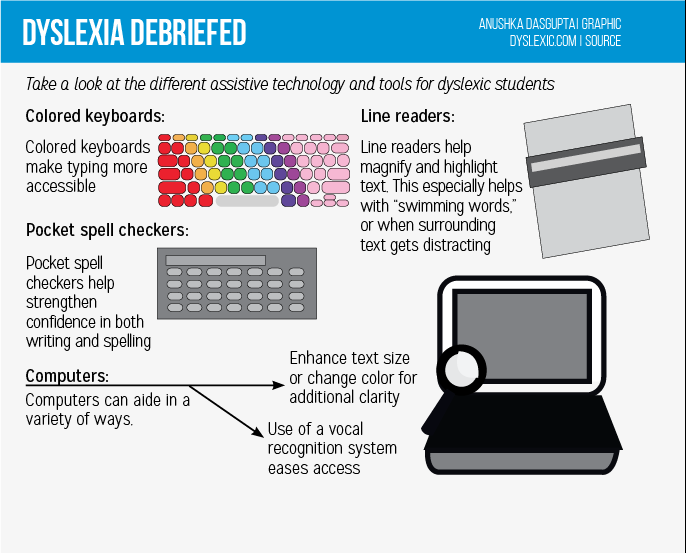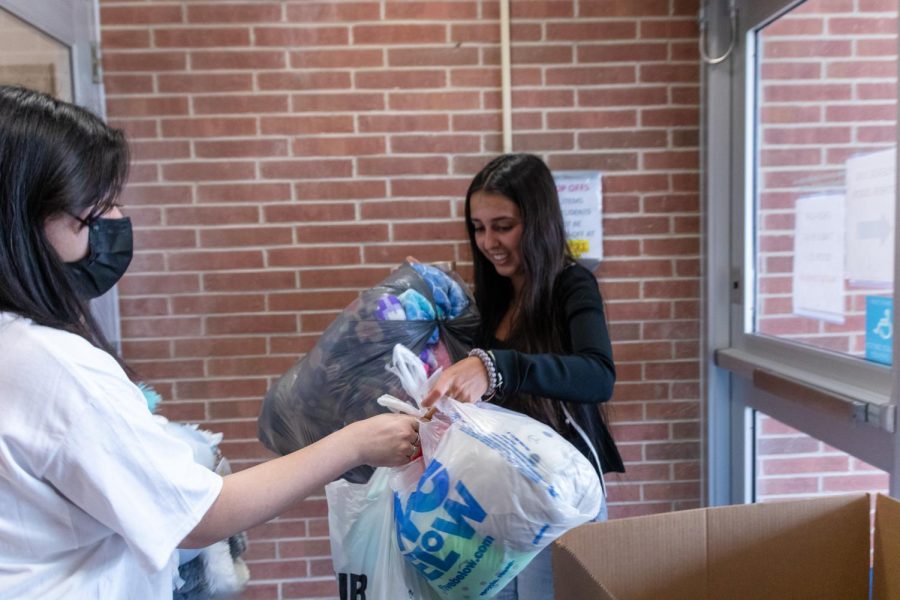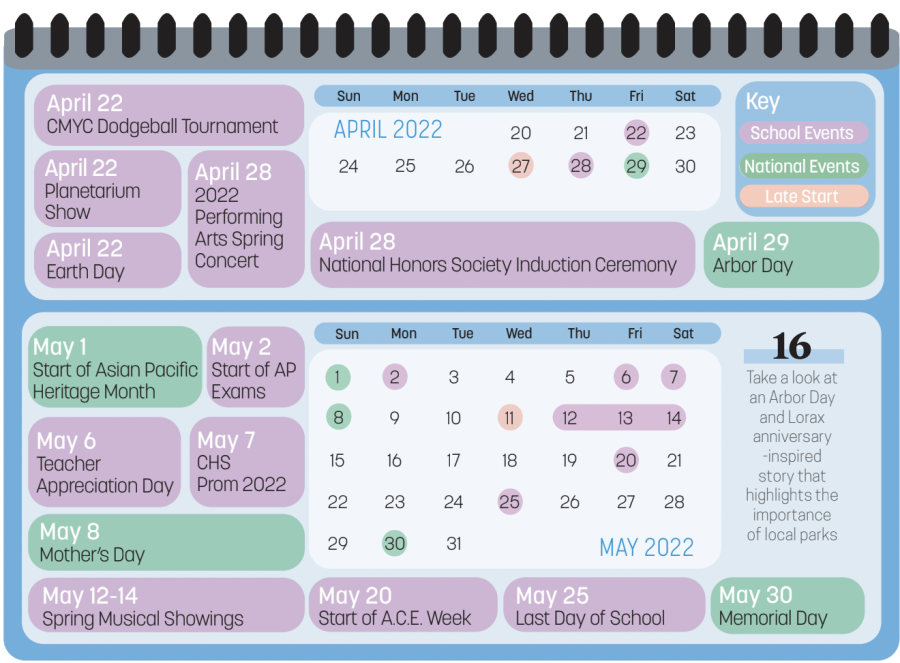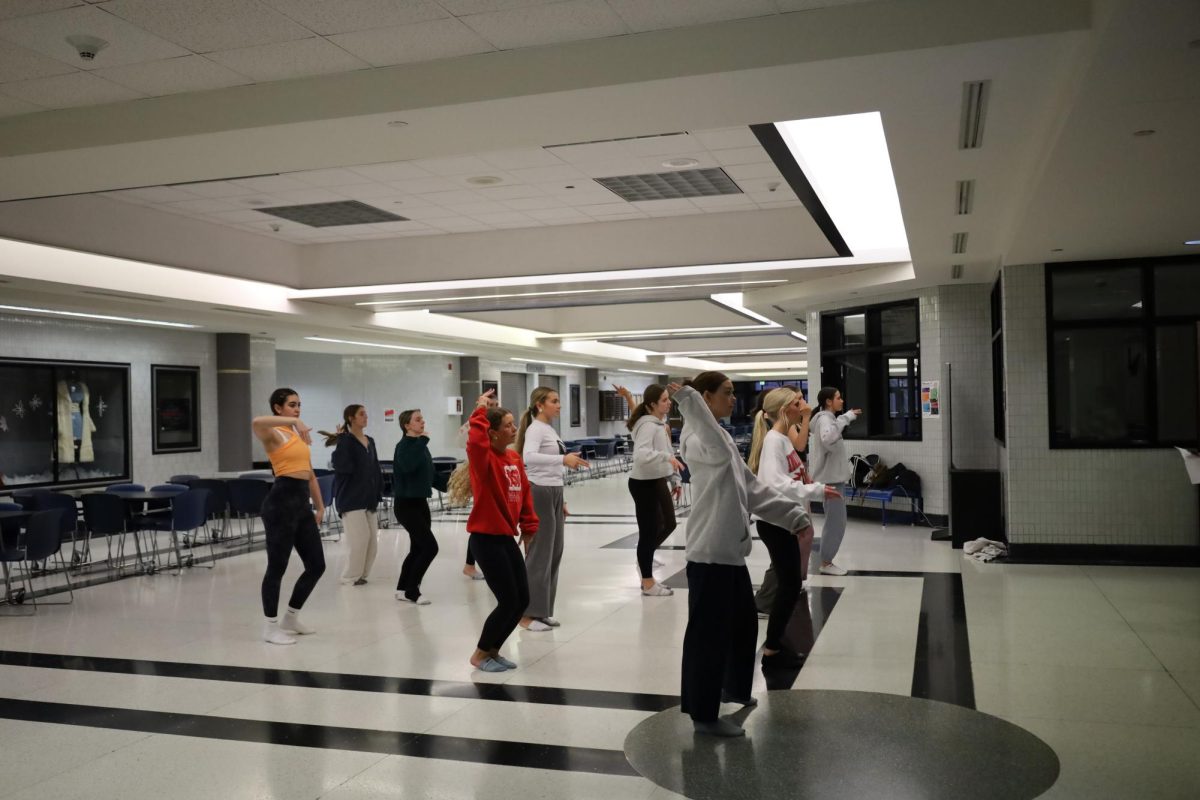The recently passed Indiana Senate Bill 217 looks to provide dyslexic students with additional assistance to overcome their disability. It states that schools must screen students for risk factors of dyslexia, as well as employ a reading specialist to work with dyslexic students.
Alissa Bandejas, dyslexic student and junior, feels that dyslexia affects students in many ways, mainly in reading fluency and comprehension.
“Dyslexia is where you have a hard time either reading, it can also be math too, there’s a form of math dyslexia I figured out.” she said. “Dyslexia is where you can either switch words on a page or either just not process the material all of the way. I have a hard time comprehending the material, so it takes me a while for the material to get into my brain and (for me to) process it all.”
Bandejas feels that such a bill would be beneficial to students, as receiving help from others helped her overcome dyslexia in her own life.
“I have a tutor for math only, because I don’t process the material all of the way for math,” Bandejas said. “For English I do ask for help, and I do ask my resource teachers for help with english and I get help from my actual English teacher.”
According to Kelly Riehle, the resource teacher assigned to Bandejas, the school is already very well equipped to help students who have dyslexia—usually in the form of testing accommodations.
“Dyslexia falls under a specific learning disability and I do have a few kids on my caseload that qualify and have dyslexia,” Riehle said. “One of the big things we do is provide accommodations to level the playing field. For example, some of those might be to read (the test) aloud, or to not count off for spelling errors or to provide them with an assistive technology device such as a laptop so they can type work rather than write long passages. So, I think accommodations are key for students with dyslexia.”
Although Riehle does deal with dyslexic students herself, she also feels a dyslexia specialist would be useful in providing additional help to these students.
“Having a reading specialist on campus would be really helpful, even if the students just have 15, 20 minutes every other day that they see this person who is super familiar with dyslexia and strategies to overcome it — I think that would be very helpful.”
Additionally, she feels that dyslexia screening in schools could would allow dyslexic students to receive help as soon as possible, especially if implemented in elementary or middle schools.
She said, “I think early intervention with really any challenge would be really key, so I think that screening piece would be useful, especially at a younger level.”
However, Bandejas was still able to receive help, despite discovering her disability later in life.
“I found out I was dyslexic when I was 13 or 14 years old — mostly because I was very bad at English.” she said. “My grades were dropping so my parents had me privately tested and that was when I found out I had it.”
Overall, Bandejas believes that, with help, dyslexia should not prevent students from achieving.
“I have to say just get a lot of help, and do the best you really can, that’s all you can do,” she said. “You are still a normal kid — dyslexia doesn’t make you any more different than you already are.”



































![British royalty are American celebrities [opinion]](https://hilite.org/wp-content/uploads/2024/03/Screenshot-2024-03-24-1.44.57-PM.png)



















![Chelsea Meng on her instagram-run bracelet shop [Biz Buzz]](https://hilite.org/wp-content/uploads/2024/04/IMG_2446-1200x838.jpg)
![Review: Quiet on Set: The Dark Side of Kids TV is the long awaited exposé of pedophilia within the children’s entertainment industry [MUSE]](https://hilite.org/wp-content/uploads/2024/04/unnamed.jpg)
![Review: “The Iron Claw” cannot get enough praise [MUSE]](https://hilite.org/wp-content/uploads/2024/04/unnamed.png)
![Review: “The Bear” sets an unbelievably high bar for future comedy shows [MUSE]](https://hilite.org/wp-content/uploads/2024/03/unnamed.png)
![Review: “Mysterious Lotus Casebook” is an amazing historical Chinese drama [MUSE]](https://hilite.org/wp-content/uploads/2024/03/0.webp)
![Review in Print: Maripaz Villar brings a delightfully unique style to the world of WEBTOON [MUSE]](https://hilite.org/wp-content/uploads/2023/12/maripazcover-1200x960.jpg)
![Review: “The Sword of Kaigen” is a masterpiece [MUSE]](https://hilite.org/wp-content/uploads/2023/11/Screenshot-2023-11-26-201051.png)
![Review: Gateron Oil Kings, great linear switches, okay price [MUSE]](https://hilite.org/wp-content/uploads/2023/11/Screenshot-2023-11-26-200553.png)
![Review: “A Haunting in Venice” is a significant improvement from other Agatha Christie adaptations [MUSE]](https://hilite.org/wp-content/uploads/2023/11/e7ee2938a6d422669771bce6d8088521.jpg)
![Review: A Thanksgiving story from elementary school, still just as interesting [MUSE]](https://hilite.org/wp-content/uploads/2023/11/Screenshot-2023-11-26-195514-987x1200.png)
![Review: When I Fly Towards You, cute, uplifting youth drama [MUSE]](https://hilite.org/wp-content/uploads/2023/09/When-I-Fly-Towards-You-Chinese-drama.png)
![Postcards from Muse: Hawaii Travel Diary [MUSE]](https://hilite.org/wp-content/uploads/2023/09/My-project-1-1200x1200.jpg)
![Review: Ladybug & Cat Noir: The Movie, departure from original show [MUSE]](https://hilite.org/wp-content/uploads/2023/09/Ladybug__Cat_Noir_-_The_Movie_poster.jpg)
![Review in Print: Hidden Love is the cute, uplifting drama everyone needs [MUSE]](https://hilite.org/wp-content/uploads/2023/09/hiddenlovecover-e1693597208225-1030x1200.png)
![Review in Print: Heartstopper is the heartwarming queer romance we all need [MUSE]](https://hilite.org/wp-content/uploads/2023/08/museheartstoppercover-1200x654.png)






















![Review: Ladybug & Cat Noir: The Movie, departure from original show [MUSE]](https://hilite.org/wp-content/uploads/2023/09/Ladybug__Cat_Noir_-_The_Movie_poster-221x300.jpg)

![Review: Next in Fashion season two survives changes, becomes a valuable pop culture artifact [MUSE]](https://hilite.org/wp-content/uploads/2023/03/Screen-Shot-2023-03-09-at-11.05.05-AM-300x214.png)
![Review: Is The Stormlight Archive worth it? [MUSE]](https://hilite.org/wp-content/uploads/2023/10/unnamed-1-184x300.png)




